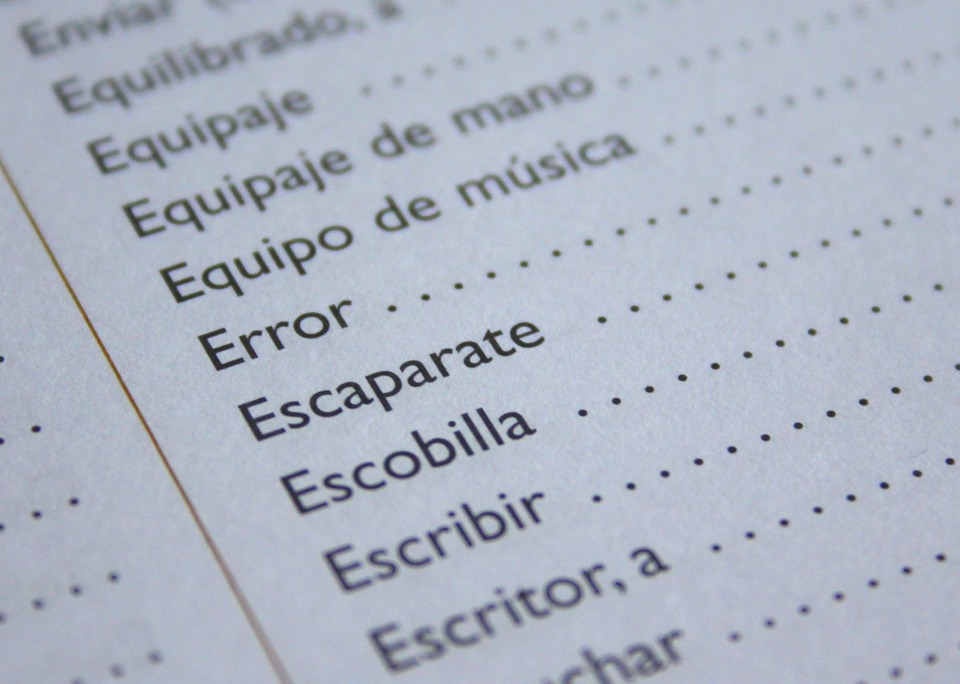
The task of getting high schoolers a solid foundation in software and coding continues. For students in today’s world, the need to know some sort of programming language is as necessary as becoming fluent in Spanish. But are the two interchangeable, and should they be?
One of the first states to try to tackle this idea was Florida. A recent NPR talk shed light on how the Sunshine State was supposedly trying to be the first to allow computer coding to fulfill a foreign language requirement in high school.
The bill that was set to pass was called Computing Coding Instruction, and according to the Florida senate’s website, it died in the state’s house of representatives. This bill would have authorized high schools to offer student opportunities to take specified computer coding courses, which would satisfy two credits of foreign language instruction under certain circumstances. Florida students are currently required to take two credits of sequential foreign language instruction at the secondary level as a prerequisite for admission to all Florida State colleges and universities.
(Related: How to become a hireable next-generation developer)
This bill makes sense at first glance. Schools know they need to start offering coding and other STEM courses because they’re both in demand and should already be a part of a core curriculum. An easy way to offer it is to have it count as a second language; that way, students that are really not interested in learning a second language have another option.
Even though the bill did not pass, at least it sparked an interesting conversation between lawmakers, educators and those who see a benefit to learning a second language (and we don’t mean coding).
Bumping up the coding curriculum
In one of the largest public school districts in Florida, Duval County Public Schools in Jacksonville, Fla., superintendent Dr. Nikolai Vitti said that in today’s world of employment, STEM jobs are not only attractive from a financial standpoint, but they also have the most opportunities. This alone is a reason to get Florida’s school districts to ensure there are STEM-related studies and activities at the high school level .
Vitti says there needs to be more coding, and it has to start at the elementary level. Some of Duval’s schools already offer after-school programs with coding fundamentals incorporated, but there still could be more at the high school and elementary core curriculum levels.
“We know that coding is a language that students will need to know as our world becomes more technologically based, so starting next year, our elementary schools will offer coding through computers, where students will be going through modules and lessons to just build the basic language of coding,” said Vitti.
This doesn’t come without challenges. For this school district, the challenge has been the ability to recruit qualified teachers for these coding courses as well as developing the courses.
While the Duval school district sees a need for coding and programming languages, Vitti did not agree with the aforementioned coding bill, saying that coding shouldn’t be a replacement to a foreign language. Learning a second language still allows students to market themselves and become culturally aware and more open minded, he said.
“I do believe there is a need to move forward with requiring coding exposure and opportunity at the high school level, but I wouldn’t say it should replace a foreign language requirement,” said Vitti.
Learn a language
Not all public schools teach some form of computer coding, and if they do, often it is as an extracurricular activity or as an elective. This could be why lawmakers and other supporters are pushing to add Python, Java or C++ to the mix of traditional languages taught in high schools.
Seems easy enough, but Jenna Nourie, world language teacher at Delbarton School, disagrees. (The Delbarton School is an all-boys Catholic school in northern New Jersey.)
She understands the emphasis on learning how to code in school since it has become a “huge part of our world,” but she wouldn’t place it in the same category as languages like Spanish or French.
“Language teachers already are fighting hard to keep students’ attention as they gravitate towards math and sciences,” she said. “It is harder for students to see the immediate perceived benefit of learning a foreign language because often they are not able to see immediate results or relevance.”
Nourie also added that it would impact students negatively if they had to choose between coding and a foreign language. Either way, they are missing out on “valuable knowledge,” she said.
Caitlin Garrett, a senior marketing data analyst for a company called Yodle, said that she was “bummed” to see that the bill did not pass because she thinks that it would be good to have students choose what they would like to take. While she herself took four years of Latin at Fryeburg Academy (a small private school in Maine), she thinks that students should have a voice in shaping their curriculum, especially if they want to focus on STEM.
Garrett says she does use Latin to this day, and because of her job, she had to learn code. She works as a data scientist to help make business decisions by using insights gathered from analyzing data, so it helps to have a few languages in her arsenal.
“I use code to do all of my analysis, but it’s important that I can translate my findings into words and visualizations that people without a statistics background can understand to help them make smart decisions,” said Garrett, who currently uses R and Python, which she is still learning.
Can coding save us from unemployment?
The push to get kids to learn to code is real. Just type in “kids learn to code” into Google and see the lists of toys, gadgets, books and courses available to help kids learn all about programming and computer science. Why get a kid a Barbie doll when they can have their very own Arduinio coding kit or Kano computing kit?
A recent article published by Fast Company combats this magical idea that coding will give high schoolers more opportunities and the chance to secure jobs in the modern workforce. Douglas Rushkoff writes that even the best “coding chops” have their limits. He suggests that the more people learn to code, the more competition there will be. Sure, you can always develop an app or platform, but you will be competing with thousands of other developers “in an online marketplace ruled by just about the same power dynamics as the digital music business.”
In short, productivity is up, innovation is faster, and we all need to catch up—making sure our skills and organizations are keeping the pace.






